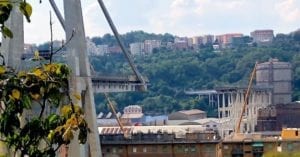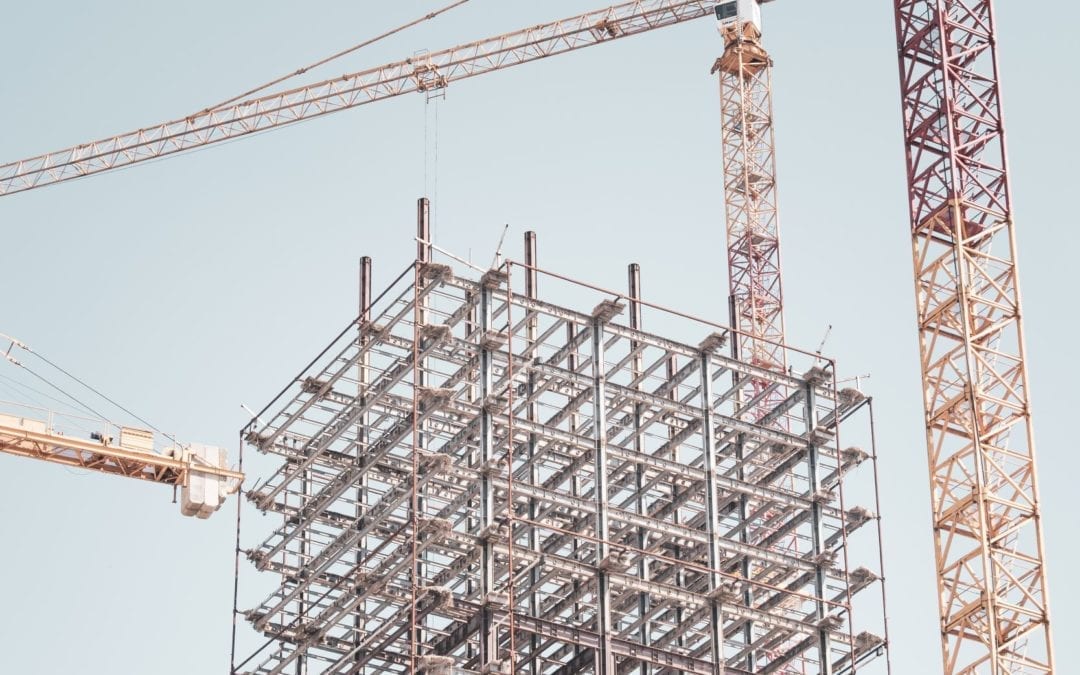The Real Cost of Poor Corrosion Prevention Practices Is Human
The financial cost of corrosion to the global economy is enormous, and estimated to be more than 3% of global GDP. Corrosion control is essential to reducing this cost, and is critical within infrastructure and transport. The economic benefits of longer life of transport and infrastructure assets are clear. Therefore, it is crucial that governments and businesses invest in corrosion control.
However, there is a far bigger reason why the Institute of Corrosion is leading the global corrosion conversation. People’s lives depend upon it.
Catastrophe is the real cost of infrastructure corrosion
 In August 2015, the catastrophic effects of a lack of corrosion management was made abundantly clear in Italy. During a violent storm in Genoa, the Morandi Bridge collapsed. 43 people lost their lives. It is not as if the disaster could not have been foreseen. Its designer Riccardo Morandi warned of the risk of corrosion to the bridge all the way back in 1979. He said:
In August 2015, the catastrophic effects of a lack of corrosion management was made abundantly clear in Italy. During a violent storm in Genoa, the Morandi Bridge collapsed. 43 people lost their lives. It is not as if the disaster could not have been foreseen. Its designer Riccardo Morandi warned of the risk of corrosion to the bridge all the way back in 1979. He said:
“Sooner or later, maybe in a few years, it will be necessary to resort to a treatment consisting of the removal of all traces of rust on the exposure of the reinforcements, to fill in the patches.”
Indeed, of all infrastructure, bridge collapses have been one of the most common examples of the cost of lack of corrosion control. Other notable bridge collapses include the following tragedies:
- Silver Bridge, on a major highway in the United States, collapsed under the weight of rush hour traffic one afternoon in December 1967. A total of 75 vehicles crashed into the Ohio River. Nine people were seriously injured. 46 people were killed. The cause? Corrosion fatigue of the bridge’s suspension chain.
- The pedestrian section of the Gokhale Bridge in Mumbai collapsed in July 2019 due to corrosion, killing one person and injuring four others.
- Preliminary evidence points to corrosion as the cause for the sudden collapse of the Nanfang’ao Bridge in Taiwan. One of only two bifurcated single-arch bridges in the world – and only 20 years old – the 320-ton bridge killed six people when it fell in October 2019.
Inevitably, when corrosion control is ignored or mismanaged on highway bridges, buildings and other infrastructure, that infrastructure is weakened and lives are put at risk.
Corrosion causes tragedy in transport disasters
Corrosion is also a huge financial cost to the transport economy. Components that corrode must be repaired or replaced, and can cause breakdown and costly delays. Massive ships have enabled vast amounts of goods to be transported around the world, but they only last around 30 years before they must be scrapped due to the effects of corrosion.
Once more, though, the financial cost pales into insignificance when compared to the human cost of poor corrosion management. Examples include:
- 74 people who died when the ferry MV Princess Ashika sank in 2009, riddled with holes caused by corrosion.
- One person died and several were injured when the Berlin Congress Hall collapsed in May 1980.
- In October 1992, an El Al Boeing 747 crashed into an apartment block in Amsterdam killing more than 100 people. It had taken off only five minutes earlier. Corroded components were found to be the culprit, causing an engine and its pylon to separate from the wing. This engine hit a second engine, causing it to separate, too.
Join the corrosion control conversation
The first of our core values is Trust and Respect. The Institute of Corrosion is an independent professional body, trusted and respected by the public with the goal of reducing the environmental impact of corrosion on our infrastructure.
It is crucial that we encourage the innovation that enables greater sustainability of our infrastructure and transport. Developments in corrosion science, prevention and management should reduce (and, eventually, eliminate) the cost of corrosion to society.
To this end, we have designed this year’s Corrosion Engineering Division (CED) Working Day around corrosion control in transport and infrastructure. Held on 29th April 2020, only five days after Worldwide Corrosion Awareness Day, the original venue could not have been more appropriate – the meeting was to be held at the National Railway Museum, York. However, as you know, world events have overtaken us this year. Consequently, we are now holding the Working Day online.
It remains a fantastic opportunity to network with other professionals from different industry sectors (albeit through cyberspace and not face-to-face) and to learn about some of the latest developments in the field of corrosion control in a variety of transport and infrastructure applications across diverse industries.
This full day event will now be free. We have an excellent group of speakers lined up, including Phillip Watkinson (Corrocoat), Chris Atkins (Mott MacDonald), Steve Paterson (Arbeadie Consultants), Cliff Harris and Clive Harrison (Jacobs), and Pablo Merino (CLH Pipeline Systems). The series of lectures will cover:
- Fascinating Uses of Heavy Duty Glassflake Coatings in Transport Applications
- Innovations in Preserving Transport Infrastructure
- Managing Corrosion in Ageing Offshore Infrastructures
- Corrosion Monitoring of Dry Fuel Storage Containers in Nuclear Facilities
- A New CP Approach on Non-Isolated and Aged Pipelines: A Case Study
If you are interested in taking part, please send an email to admin@icorr.org by 24th April. In return we will send you a link to be able to join the meeting. Please also indicate which working group discussion you would like to join in the afternoon.

